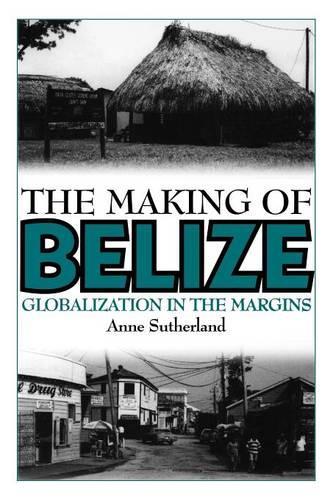
The Making of Belize: Globalization in the Margins
(Paperback)
Available Formats
Publishing Details
The Making of Belize: Globalization in the Margins
By (Author) Anne Sutherland
Bloomsbury Publishing PLC
Praeger Publishers Inc
30th July 1998
United States
Classifications
Tertiary Education
Non Fiction
History of the Americas
972.82
Physical Properties
Paperback
224
Description
Globalization theorists predict that the forces of globalization will divide the countries of the world into a few winners and many losers. This book challenges that idea and suggests that the very margins of the global world systemwhere the construction of local relations and group identities within a deterritorialized, transnational political economy allows for a creative postmodernismmay become the areas of the most creative cultural activity. The difficulties facing those who are globalizing in the margins come from powerful transnational movements such as the environmental movement, the international drug trade, and migrations of people including international tourists. Ironically, instant contact with the rest of the world has created a sense of local identity that transcends the local and is truly multicultural. Belize is a diverse, multicultural society that is both cosmopolitan and deterritorialized, searching for new forms of collective expression, identity, and imagined possibilities, coming into its own as a nation at a time of increasing awareness of global social realities. Perhaps the rreatest challenge faced by Belizeans is the power of the transnational eco-colonialists who have, with missionary zeal, garnered control of land and resources and placed themselves in positions of political power. The present is an end of history for Belize and the beginning of a new era, one that is peculiarly postmodern, globalized, and creative.
Reviews
[A]n enjoyable mixture of academic research, anecdotal insights and strong - even controversial opinion....This book deserves to be read by any visitor to Belize, whether arriving as a tourist or as a volunteer with one of the many international conservation organisations now operating there.-British Bulletin of Publications
Sutherland's perceptive book on Belize combines antropological analysis with a deep knowledge of local culture. Essentially, it is a portrait of a small nation in transition. The central theme of the study is that globalization on the margins carries both opportunities and special risks....A fine study of the limits of sovereignty and the difficulties and hopes experiences by one small postcolonial society. General readers, upper-division undergradutes, and above.-Choice
"An enjoyable mixture of academic research, anecdotal insights and strong - even controversial opinion....This book deserves to be read by any visitor to Belize, whether arriving as a tourist or as a volunteer with one of the many international conservation organisations now operating there."-British Bulletin of Publications
"[A]n enjoyable mixture of academic research, anecdotal insights and strong - even controversial opinion....This book deserves to be read by any visitor to Belize, whether arriving as a tourist or as a volunteer with one of the many international conservation organisations now operating there."-British Bulletin of Publications
"Sutherland's perceptive book on Belize combines antropological analysis with a deep knowledge of local culture. Essentially, it is a portrait of a small nation in transition. The central theme of the study is that globalization on the margins carries both opportunities and special risks....A fine study of the limits of sovereignty and the difficulties and hopes experiences by one small postcolonial society. General readers, upper-division undergradutes, and above."-Choice
Author Bio
ANNE SUTHERLAND is Professor of Anthropology at Macalester College in St. Paul, Minnesota. Her previous books include Caye Caulker: Economic Success in a Belizean Fishing Village (1986) and Gypsies, The Hidden Americans (1986).
